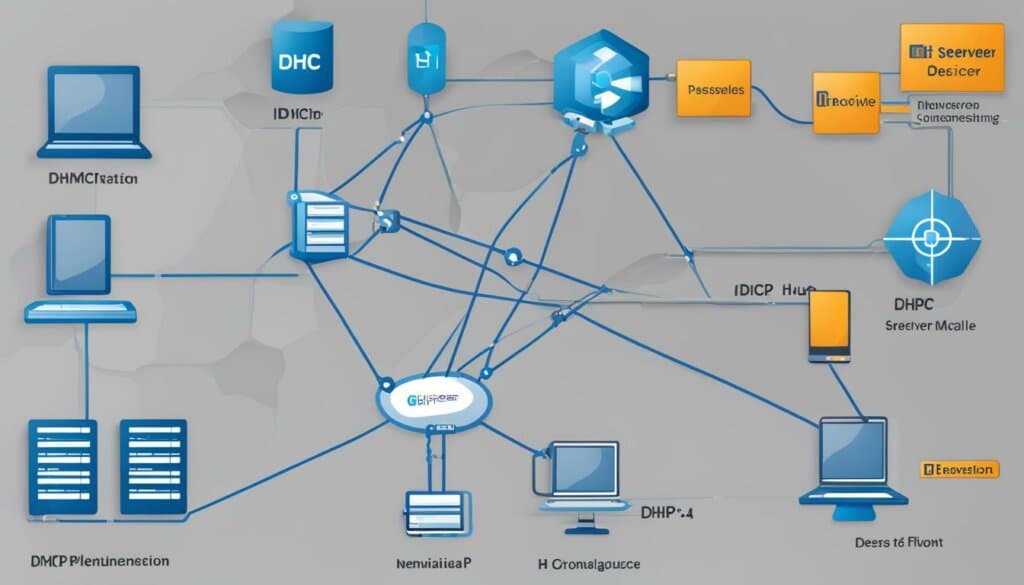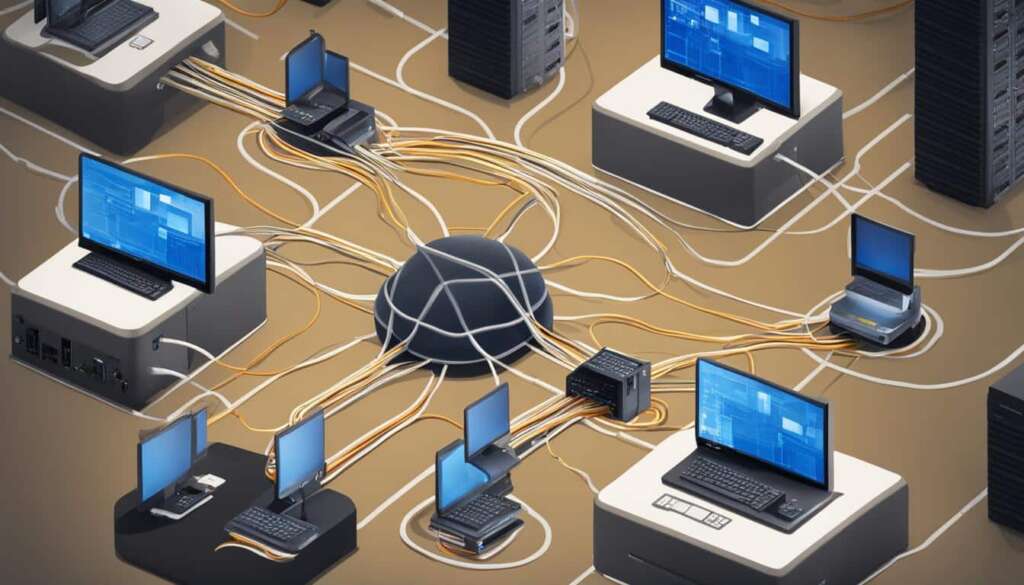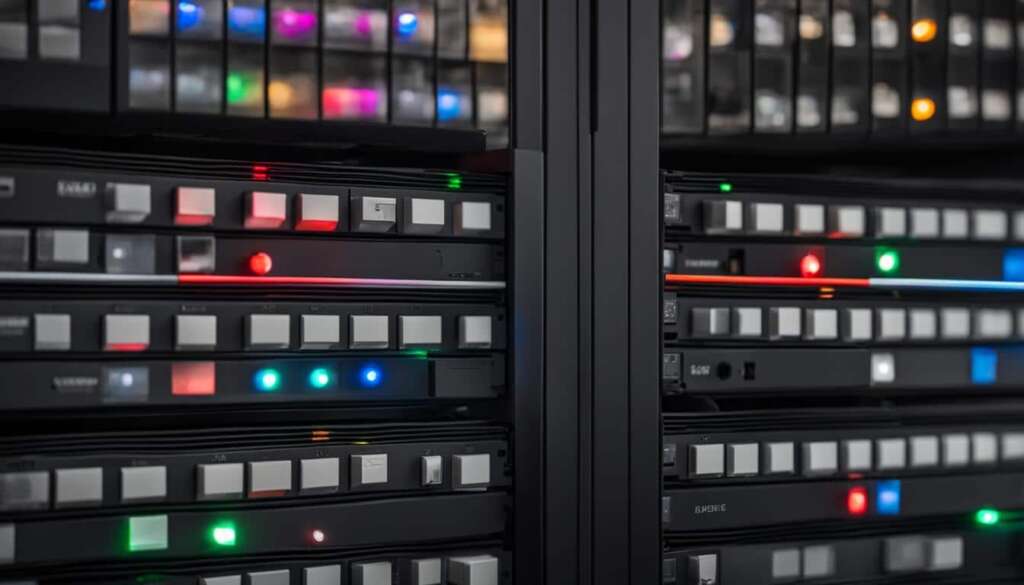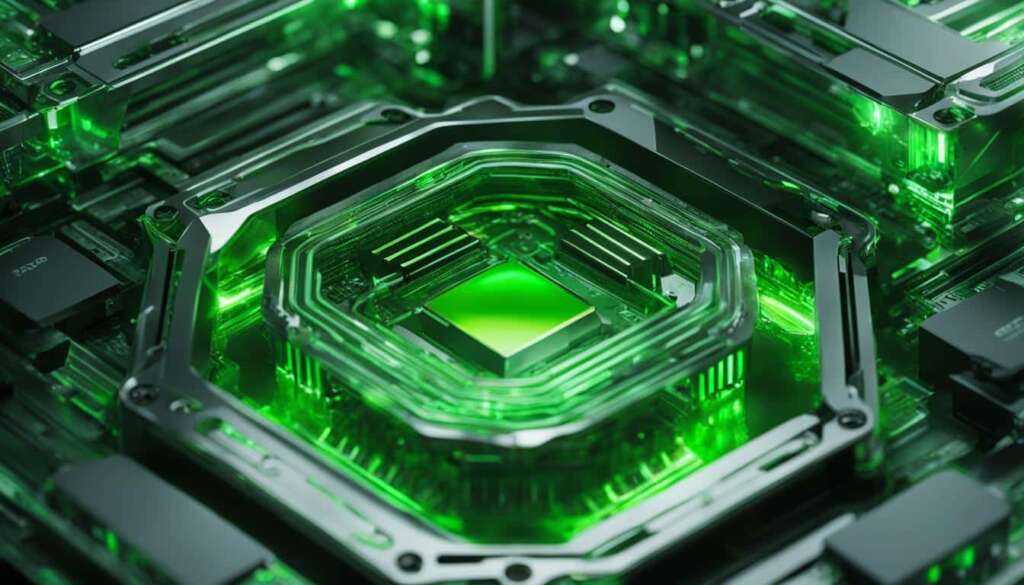Table of Contents
Welcome to our fascinating exploration of the DHCP server, the dynamic host configuration protocol server that plays a crucial role in network configuration. Whether you are a seasoned network administrator or a curious enthusiast, this article will provide you with a comprehensive understanding of this essential component.
A DHCP server, short for Dynamic Host Configuration Protocol server, is a network element that assigns IP addresses and other essential network configurations to computers and devices. Its automated approach eliminates the need for manual configuration, saving time and ensuring efficient connectivity for a diverse range of devices.
When a client device connects to a network, it relies on the DHCP server to provide it with an IP address. This server assigns the IP address automatically, making the process seamless and hassle-free. Additionally, the DHCP server can assign IP addresses from a predefined range or statically assign them based on the client’s unique MAC address. Alongside IP addresses, the server can provide other crucial configuration information, such as gateway IP, DNS servers, and NTP servers.
In the following sections, we will delve into how the DHCP server works, its configuration options, the benefits of using a dedicated server, and more. By the end of this article, you’ll have the knowledge and insights needed to make informed decisions regarding DHCP server implementation and management.
How Does DHCP Server Work
When a client device connects to a network, it tries to discover a DHCP server. The client sends a broadcast message requesting an IP address, and the DHCP server responds with an offer from its pool of available addresses. The client then sends a request for that specific IP address, and the DHCP server acknowledges the request and assigns the IP address to the client. This process is based on broadcast messages and allows for automatic and dynamic assignment of IP addresses.
| Broadcast Messages | Assigned IP Address |
|---|---|
| Client sends a broadcast message requesting an IP address | The DHCP server responds with an offer from its pool of available addresses |
| Client sends a request for the specific IP address | The DHCP server acknowledges the request and assigns the IP address to the client |
DHCP Server Configuration
Configuring a DHCP server involves adjusting various settings to ensure efficient IP address allocation. These settings include:
- IP address range: Define the range of IP addresses from which the DHCP server will assign addresses to clients. This range should be carefully chosen to accommodate the expected number of devices on the network.
- Lease duration: Specify the duration for which a client can use an assigned IP address before it expires. This setting helps ensure that IP addresses are efficiently managed and released when no longer in use.
- Domain name suffix: Determine the domain name suffix that will be appended to the hostnames of devices on the network. This configuration option helps simplify network management and improves user experience.
- DNS servers: Configure primary and secondary DNS servers to enable DNS resolution for client devices. These servers are responsible for translating domain names into IP addresses, allowing devices to access websites and services on the internet.
- NTP servers: Specify primary and secondary NTP servers to synchronize the time on client devices. This ensures accurate timestamps for events and supports various time-dependent network protocols.
- WINS servers: Set primary and secondary WINS servers if your network uses the Windows Internet Name Service for NetBIOS name resolution. This configuration allows devices to discover and communicate with Windows-based resources.
Additionally, DHCP servers can support fixed leases, where specific clients are assigned a static IP address. This feature is useful for devices that require consistent IP addresses for specific purposes, such as servers or printers.
To configure a DHCP server, network administrators can access the server’s management interface, which provides a user-friendly interface for modifying these settings. The exact steps may vary depending on the DHCP server software being used, but most configurations include these fundamental options.

Benefits of Using a Dedicated DHCP Server
When it comes to network configuration, a dedicated DHCP server can provide numerous benefits that enhance efficiency and simplify administration. By understanding the basics of DHCP server setup, network administrators can unlock the full potential of this essential tool.
Simplified IP Address Management
One of the key advantages of a dedicated DHCP server is centralized IP address management. With a dedicated server, network administrators can easily track and allocate IP addresses to clients. This eliminates the need for manual configuration and reduces the risk of duplicate or conflicting addresses. By streamlining the IP address management process, a dedicated DHCP server saves valuable time and minimizes errors.
Customized Interfaces for Easier Administration
A dedicated DHCP server often provides customized logging and management interfaces, making it easier for network administrators to monitor and manage the DHCP server. These interfaces offer intuitive controls and real-time insights, simplifying the administration process and enhancing overall network management.
Support for IPv4 and IPv6
In today’s modern network environments, support for both IPv4 and IPv6 addresses is crucial. A dedicated DHCP server ensures seamless compatibility with both protocols, allowing for smooth network operations without the need for separate DHCP servers. Whether your network relies on IPv4 or has transitioned to IPv6, a dedicated DHCP server can handle both with ease.
High Availability and Redundancy
In the event of a server crash or downtime, maintaining IP addresses becomes critical to preserving network connectivity. A dedicated DHCP server offers high availability and redundancy measures to ensure that clients can still access their assigned IP addresses even if the server experiences interruptions. This ensures uninterrupted network service and reduces the risk of disruptions or downtime.
Simplification of IPv4 to IPv6 Migration
As the world moves towards IPv6, the migration process can present challenges for network administrators. However, a dedicated DHCP server simplifies the transition by supporting both IPv4 and IPv6 protocols. This allows for a gradual migration without compromising network performance or connectivity. By leveraging the capabilities of a dedicated DHCP server, organizations can smoothly navigate the transition to IPv6.
Overall, utilizing a dedicated DHCP server offers invaluable benefits for efficient network management. From simplified IP address management to seamless protocol support and enhanced reliability, a dedicated DHCP server empowers network administrators to build and maintain robust networks with ease.
Conclusion
The DHCP server, an essential component in network configuration, plays a crucial role by automatically assigning IP addresses and other network parameters to client devices. By eliminating the need for manual configuration, it enhances efficiency and scalability, particularly in large networks.
A dedicated DHCP server offers numerous benefits, including centralized management, supporting both IPv4 and IPv6, and providing high availability. With centralized management, network administrators can effectively track and allocate IP addresses to clients, simplifying network administration. The support for both IPv4 and IPv6 addresses ensures compatibility with modern network environments.
By understanding the workings and configuration options of a DHCP server, network administrators can ensure seamless connectivity and efficient network management. They can configure the IP address range, lease duration, and additional options such as domain name suffix, DNS servers, NTP servers, and WINS servers. DHCP servers also support fixed leases, allowing certain clients to be assigned static IP addresses.
In conclusion, DHCP servers are essential tools for network configuration, providing automatic assignment of IP addresses and simplifying network management. Using a dedicated DHCP server offers centralized management, support for both IPv4 and IPv6, and high availability. With this knowledge, network administrators can optimize network connectivity and efficiently manage their networks.
FAQ
What is a DHCP server?
A DHCP server, or Dynamic Host Configuration Protocol server, provides IP addresses and other network configuration to computers and devices on a network. It assigns IP addresses automatically, eliminating the need for manual configuration.
How does a DHCP server work?
When a client device connects to a network, it tries to discover a DHCP server. The client sends a broadcast message requesting an IP address, and the DHCP server responds with an offer from its pool of available addresses. The client then sends a request for that specific IP address, and the DHCP server acknowledges the request and assigns the IP address to the client. This process allows for automatic and dynamic assignment of IP addresses.
How do I configure a DHCP server?
DHCP server configuration involves setting up the IP address range from which the server will assign addresses. The configuration also includes specifying the lease duration, additional configuration options, and support for fixed leases, where specific clients are assigned a static IP address.
What are the benefits of using a dedicated DHCP server?
Using a dedicated DHCP server allows for centralized management of IP addresses, customized logging and management interfaces, support for both IPv4 and IPv6, high availability, and simplification of the migration from IPv4 to IPv6.













